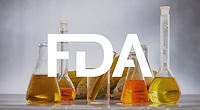UKHSA Publishes Updated Guidelines on Interpreting Microbial Test Results for RTE Foods at Retail

Image credit: Freepik
To assist interpretation of test results generated by UK Health Security Agency (UKHSA) microbiology laboratories, UKHSA has published new guidelines for assessing the microbiological safety of ready-to-eat (RTE) foods placed on the market.
The legal obligations described in the new guidelines are very similar to the previous version published in 2009, but reflect the UK’s exit from the EU, now referencing UK provisions rather than EU law. However, the new guidelines are more scientifically current, considering the accumulation of data on the microbiological testing of foods from UKHSA’s Food, Water, and Environmental Microbiology Services (FWEMS) labs since 2009.
The scope of the guidelines includes RTE food sampled within the retail food supply chain.
Providing a framework for standardized laboratory results interpretation and advice on remedial actions to be recommended by staff, the guidelines are intended for practical use within UKHSA, as well as by local authority and port health authority enforcement officers. They include information on pathogenic foodborne bacteria and bacteria that can act as hygiene indicators, information on the interpretation of test results, comments on poor practices that are likely to have contributed to adverse results, and suggested appropriate public health actions.
Additionally, the new guidelines have been expanded to include information on statutory requirements, such as for Shiga toxin-producing Escherichia coli (STEC) testing, as well as advice on sampling, transport, and test selection.
Looking for a reprint of this article?
From high-res PDFs to custom plaques, order your copy today!






